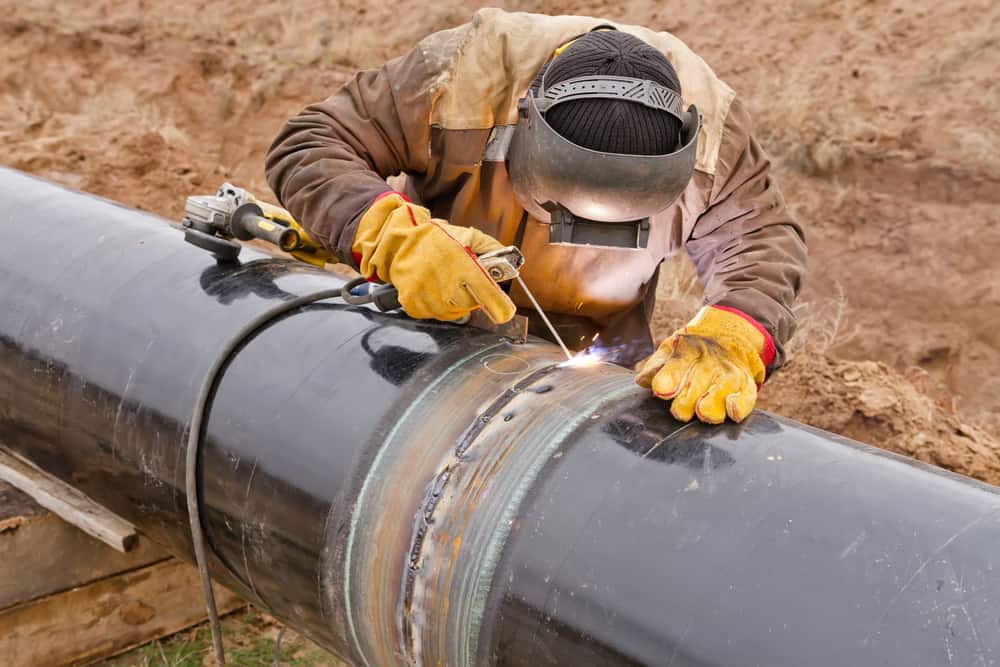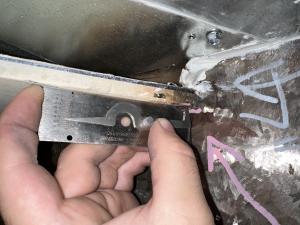Specialist Welding Inspection Services in Gilbert Arizona: What You Need to Know
Specialist Welding Inspection Services in Gilbert Arizona: What You Need to Know
Blog Article
Checking Out the Relevance of Welding Assessment in Industrial Applications: Safeguarding Versus Failures and Enhancing Longevity
Welding assessment functions as an important line of defense in commercial applications, making certain the architectural integrity and integrity of bonded elements. By methodically determining defects such as porosity and incomplete blend, inspections not only protect against failures however additionally extend the life-span of crucial assets. Sticking to sector standards improves both security and operational effectiveness; nonetheless, the effects of overlooking these methods can be extreme. As we check out the multifaceted advantages of normal inspections, it becomes apparent that comprehending these characteristics is not just a matter of conformity however a critical vital for durability and threat reduction.
Duty of Welding Assessment
Welding assessment works as a critical secure in industrial applications, guaranteeing that welded frameworks fulfill specified standards of quality and safety and security. This procedure includes a systematic examination of welds to validate their honesty, stamina, and conformity with well-known codes and requirements. The function of welding evaluation is multifaceted, incorporating both visual assessments and non-destructive testing methods, which might include ultrasonic, radiographic, or magnetic particle screening.
Efficient welding evaluation recognizes potential concerns early, alleviating the risk of tragic failures that can arise from poor welds. By making certain that welds are performed according to design requirements, inspectors add to the overall structural reliability and long life of parts in essential applications, such as pressure vessels, pipes, and structural frameworks.

Usual Welding Defects

One of the most prevalent defects is porosity, characterized by small gas pockets trapped within the weld steel. This takes place because of pollutants or incorrect shielding gas, compromising the weld's strength. An additional substantial issue is insufficient fusion, where the weld metal fails to bond appropriately with the base product, potentially causing structural weaknesses.

Splits can also create during or after the welding process, often credited to thermal stress and anxieties or incorrect air conditioning rates. In addition, undercutting, where the base metal is deteriorated along the weld grain, can deteriorate the joint and is commonly triggered by too much warm input or incorrect strategy.
Furthermore, absence of infiltration happens when the weld metal does not get to the root of the joint, leading to poor strength. Recognizing these typical defects is crucial for inspectors and welders alike to make sure that welded frameworks fulfill security and efficiency standards, eventually preventing prospective failings in industrial applications.
Advantages of Regular Assessments
Routine inspections function as a critical protect in making certain the reliability and durability of bonded structures. These analyses a fantastic read determine possible issues and weaknesses that may endanger the integrity of welds, permitting prompt removal before issues intensify. By executing an organized inspection routine, companies can substantially lower the risk of catastrophic failures that may cause pricey downtime, tools substitute, or even mishaps.
In addition, normal inspections add to improved high quality control throughout the welding process. By adhering to a constant assessment timetable, firms can ensure that their welding practices meet established quality benchmarks and finest practices. This not only fosters a culture of accountability but also urges constant renovation amongst welding workers.
Furthermore, routine assessments help with better maintenance planning. By determining deterioration early, organizations can strategically set up repairs and substitutes, minimizing disturbance to procedures. This aggressive technique eventually results in extended property life expectancy and boosted total efficiency.
Last but not least, a commitment to normal assessments can enhance a business's credibility in the sector. Clients and stakeholders significantly value companies that focus on security Bonuses and high quality, thus boosting count on and possibly leading to boosted business chances.
Sector Specifications and Regulations
Sticking to sector standards and guidelines is a fundamental aspect of welding assessment that complements the benefits of regular analyses. These standards, established by companies such as the American Welding Culture (AWS) and the American Society of Mechanical Engineers (ASME), important source supply a structure for best techniques in welding processes, materials, and assessment strategies. Conformity with these regulations guarantees that welds satisfy the called for top quality and safety criteria, dramatically reducing the risk of structural failures.
Regulative bodies like the Occupational Security and Wellness Management (OSHA) further impose guidelines that safeguard workers and the atmosphere throughout welding procedures. By complying with these established standards, industries can boost the integrity of their frameworks and parts, ensuring they carry out as meant under different operational conditions.
Furthermore, adherence to industry standards cultivates consistency in quality assurance, helping with smoother communication among stakeholders and regulatory firms. This placement not just lessens obligation dangers however likewise enhances the integrity of organizations in competitive markets. Welding Inspection Gilbert Arizona. Ultimately, conformity with welding requirements and policies is not merely a legal commitment; it is a crucial investment in safety, efficiency, and long-lasting operational success
Future Trends in Welding Examination
As markets remain to evolve, the future of welding examination is positioned to integrate advanced modern technologies that improve accuracy and efficiency. One of the most substantial patterns is the adoption of automation and robotics in assessment processes. Automated systems can perform assessments rapidly, decreasing human mistake and boosting throughput in manufacturing settings.
Furthermore, the assimilation of expert system (AI) and artificial intelligence algorithms will certainly allow anticipating analytics, allowing for real-time analyses and proactive maintenance. By analyzing data from previous examinations, these modern technologies can determine patterns that might indicate prospective failings, thus prolonging the life-span of welded components.
Furthermore, non-destructive screening (NDT) methods are expected to come to be more advanced, making use of devices such as drones and self-governing automobiles equipped with advanced sensing units. Welding Inspection Gilbert Arizona. These advancements will improve the capacity to inspect hard-to-reach or dangerous areas without jeopardizing security
Furthermore, the trend towards digitalization will cause boosted information monitoring systems that facilitate better tracking, reporting, and compliance with market requirements. In summary, the future of welding assessment is defined by technical innovations that promise to significantly improve reliability, safety, and operational efficiency in numerous commercial applications.
Verdict
To conclude, welding inspection serves a vital feature in making certain the honesty and durability of bonded frameworks throughout different industrial applications. By determining defects such as porosity and incomplete blend, normal assessments play a considerable role in risk reduction and quality control. Adherence to market standards and regulations better boosts operational safety and reliability. As innovations in modern technology remain to develop, the future of welding evaluation assures raised accuracy and efficiency, inevitably adding to the longevity of crucial facilities.
Welding inspection serves as a critical line of defense in industrial applications, making certain the structural honesty and reliability of welded parts.Welding evaluation offers as a critical protect in industrial applications, guaranteeing that welded frameworks fulfill specified requirements of top quality and security. Eventually, the role of welding evaluation is crucial in promoting safety, improving performance, and securing investments in industrial infrastructure.
These requirements, developed by companies such as the American Welding Culture (AWS) and the American Society of Mechanical Designers (ASME), give a framework for best methods in welding procedures, products, and inspection methods.In verdict, welding inspection serves an important function in making certain the integrity and resilience of bonded structures across various industrial applications.
Report this page